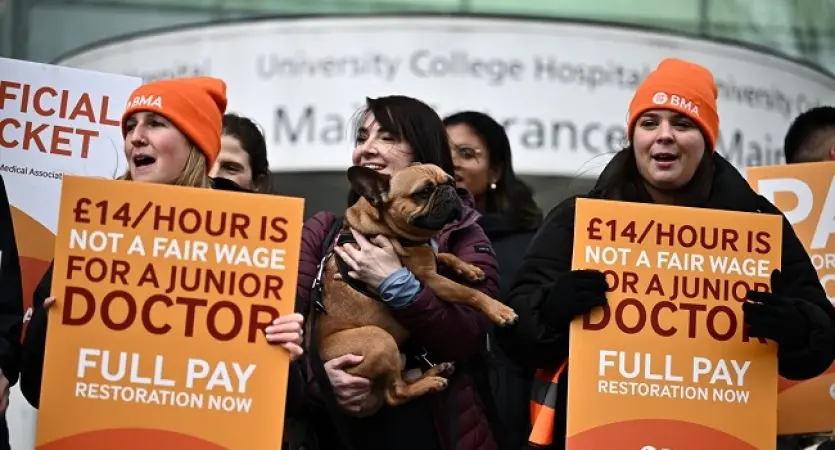Thousands of doctors across England began a five-day strike on Friday in a dispute that has dragged on for more than two years and reshaped the country’s health sector. It is the thirteenth walkout by resident doctors since March 2023 and once again places the National Health Service under pressure as hospitals brace for delays, crowded emergency wards and postponed treatments.
The striking doctors are those below consultant level, a group that makes up roughly half of the medical workforce. Their action drew sharp criticism from Health Secretary Wes Streeting, who accused the leadership of the British Medical Association of escalating conflict rather than seeking a settlement.
In an opinion piece, he argued that the union’s demands no longer reflected fairness and insisted the government would not reopen negotiations on pay after what he described as a significant rise over the past three years.
The British Medical Association maintains a different view of the situation. The union says its members’ earnings have fallen far below their real value compared with two decades ago, and it is calling for a pay adjustment of about twenty-six percent to close that gap. It is also seeking more training posts, warning that thousands of young doctors are unable to progress in their careers.
Read Also:
- Hospitals shut down nationwide as Resident Doctors begin 5-day strike
- Doctors demand immediate fuel price reduction, economic reforms from Tinubu
- ESUT Doctors to go on indefinite strike over shortage of staff, insecurity
According to the union, as many as thirty thousand applicants compete for only ten thousand positions each year, leaving many without a stable role even after years of medical training.
The strike unfolds against the backdrop of a prolonged cost of living crisis that has prompted widespread industrial action. Teachers, nurses, ambulance workers, lawyers, train staff and border officials have all taken turns walking out over the past three and a half years as wages lagged behind rising living costs. For the health service, the latest disruption adds to an already heavy burden, with patients once again facing longer waits and reduced access to care.
Despite strong criticism from the government, doctors say their campaign will continue until both pay and career progression are addressed. Their action has become a defining test for the new Labour administration as it tries to stabilise a strained NHS while confronting growing unrest across key public sectors.






